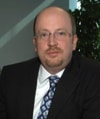Regional Winners
North America
Citi
Citi is one of the largest FX providers in the world, with more than 1,400 currency trading and sales professionals in 85 countries. “We continue to invest heavily in our business,” says Jeff Feig, managing director and global head of G10 FX. “Citi offers the best advice, information, execution and tools to help manage foreign exchange exposures,” he adds.
Citi’s dealing rooms in smaller countries are linked to hubs that are, in turn, linked together. Major FX hubs are in London, New York, Tokyo and Singapore. Locally recruited employees have detailed knowledge of these markets that can be used by G10 clients involved in cross-region mergers and investments in emerging markets.

“We continue to invest heavily in our business”
“Citi offers the best advice, information, execution and tools to help manage foreign exchange exposures” – Jeff Feig, Citi
CitiFX Pulse was designed primarily to meet the needs of Citi’s worldwide corporate clients. The platform provides FX pricing for spot, forward and swap transactions on a real-time basis in more than 400 currency pairs. The integration of CitiFX Pulse with CitiFX Click, a post-trade platform, allows clients to monitor the performance of their hedges in real time.
Global FX market turnover was 20% higher in April 2010 than in April 2007, according to the Bank for International Settlements. Citi’s FX volume growth was approximately 84% in the same period.
Citi’s corporate solutions group (CSG) advises multinational corporations on FX risk management, from identification and measurement of risks to the implications of hedging. In 2010, CSG completed its third survey of more than 300 top multinational companies worldwide on FX risk-management practices.
Western Europe
Deutsche Bank
Deutsche Bank has the biggest foreign exchange market share in most regions of the world, but its home market gets special attention. “Deutsche Bank is the biggest bank in Germany, and we have very close relations with our bread-and-butter corporate market,” says Kevin Rodgers, global head of FX derivatives. Deutsche Bank has expanded its European presence with the acquisition of parts of ABN Amro’s commercial banking activities in the Netherlands and its takeover of Deutsche Postbank.
With its large balance sheet and expertise in derivatives, Deutsche Bank has taken advantage of volatility in the euro to increase its FX business with corporations looking to manage their currency exposure. It offers customized solutions that include options in addition to forward contracts. “During 2010, we saw strong interest in bespoke FX hedging solutions because of the volatility in the market, which made hedging using just forwards both risky and expensive,” Rodgers says.
As in the past, most of the demand came from corporations and financial institutions seeking to manage their cash flows and liabilities. “But we also saw a significant increase in interest from investors looking to protect their portfolios against adverse currency movements,” Rodgers says. “Our world-class risk-management technology and research, and the most sophisticated and largest spot FX trading business in the world, provide the foundation for the innovation, pricing and liquidity we are able to offer.”
Asia-Pacific
Standard Chartered Bank
Standard Chartered Bank’s deep knowledge of local markets in Asia is based on its 150-year history in the region, where many people view it as a local bank. “Our extensive footprint in Asia is unmatched by the true local banks,” says Nitin Gulabani, global head of rates and foreign exchange at Standard Chartered, who is based in Singapore.

“We have continued to demonstrate a commitment to the countries where we operate”
“The fact that we … expect to be here for good makes us contemplate our activity carefully to make sure it suits our clients from a long-term perspective” – Nitin Gulabani, Standard Chartered
Standard Chartered is a key market maker in Asian foreign exchange markets, where it continues to add to its lengthy list of innovations. In 2010 it executed the first-ever cross-currency swap in Nepal and the first foreign exchange option in Bangladesh. “We have continued to demonstrate a commitment to the countries where we operate,” Gulabani says. “The fact that we have been in these markets for such a long time, and that we expect to be here for good, makes us contemplate our activity carefully to make sure it suits our clients from a long-term perspective.”
Standard Chartered continues to expand its local presence and enhance its FX expertise in the region, he says. In the Chinese renminbi market, for example, Standard Chartered is an authorized institution that can clear trade-related transactions with clearing and agent banks on the mainland, where it can source liquidity from the FX market. It offers a full range of FX and interest-rate products in both the offshore renminbi deliverable market and the offshore non-deliverable market.
Southeast Asia
Standard Chartered Bank
Standard Chartered has more than 150 forex sales and trading staff in Southeast Asia, giving it an on-the-ground presence that is unmatched by any international bank. The bank’s FX specialists are spread across Singapore, Malaysia, Thailand, Indonesia, the Philippines and Vietnam.
“Our onshore presence gives Standard Chartered a unique understanding of Southeast Asian currency markets and of our clients’ needs in the region,” says Nitin Gulabani, global head of rates and foreign exchange. Standard Chartered has deep local roots, with the added benefit of a global network. The bank trades in all Asian currencies, including a range of exotic currencies. “We provide the best local access and we have been in the region a long time,” Gulabani says. “We know our clients, and this helps us to help them.”
Some 80% of Standard Chartered’s foreign exchange deal flow is automated, which provides clients with faster service and enables the bank’s traders to spend more time on providing value-added trade ideas. Standard Chartered is a top provider of local currencies in the region to several central banks, including those in Thailand, Singapore and the Philippines.
Nordic Countries
SEB
SEB is the largest foreign exchange bank in the Nordic region. It started out as Enskilda Banken more than 150 years ago and is the main banker to the majority of the largest multinational corporations and financial institutions in the region. “We work in the long SEB tradition of building relationships based on really knowing our clients’ business and business models inside out,” says Joachim Alpen, global head of foreign exchange.

“We work to optimize process flows and maximize operational efficiencies”
“SEB is the only Nordic bank that offers FX prime brokerage” – Joachim Alpen, SEB
SEB is the leading market maker in the Swedish krona, the Danish krone and the Norwegian krone. It has the largest team dedicated to FX of all banks in the region and more than 200 FX staffers in 16 financial centers around the world.
During the past year, SEB has gained significant market share in all of the Nordic countries. Its Trading Station platform offers clients 24-hour direct access to the global currency market. The platform is continuously updated with real-time exchange rates, interest rates, market information and research reports. “Our customers use Trading Station for 70% of their foreign exchange activities,” Alpen says.
In 2010, SEB introduced Cash Flow Hedging (CFH), which enables a corporate treasurer to manage a group’s entire FX exposure in real time. “All of the group’s cash flows are automatically consolidated, and any changes in the FX exposure are instantly visible,” Alpen says.
“SEB is the only Nordic bank that offers FX prime brokerage, whereby we work to optimize process flows and maximize operational efficiencies,” he says. SEB’s multiasset prime brokerage capability enables consolidated settlement, clearing and reporting that reduces margin requirements and carry costs through cross-product netting.
Central & Eastern Europe
Société Générale
Société Générale, one of the largest banks in the eurozone, has a strong network in Central and Eastern Europe and has invested heavily in foreign exchange technology. “We know how important foreign exchange is to our clients,” says Gary Hawkins, global head of emerging markets at Société Générale Corporate & Investment Banking.
SG CIB has completed the build-out of its corporate foreign exchange initiative and is now winning recognition for its fixed-income and currencies platform. Having a global platform and a local presence in the CEE is a differentiating factor for the bank, Hawkins says. “The global-local model works well for us,” he says. SG CIB is present in 33 countries, and Hawkins says the CEE is a core growth area for the bank.
Majority-owned BRD-Groupe Société Générale is the second largest bank in Romania, with nationwide network of branches. Société Générale Expressbank is a leading bank in Bulgaria. Other affiliate banks include Komercni Banka in the Czech Republic, Euro Bank in Poland, SKB Banka in Slovenia, Splitska Banka in Croatia, and Société Générale Srbija in Serbia. Société Générale is present in Russia through a number of subsidiaries, including Rosbank and Banque Société Générale Vostok. SG also has operations in Belarus, Georgia, Macedonia and Moldova.
Altogether, SG owns 18 banks in the CEE region, which gives it strong access to liquidity in local currencies, says Marc Zaffran, managing director and co-head of distribution for interest rates and foreign exchange derivatives. SG is a leading dealer in many regional currencies, including those of Russia, Poland, the Czech Republic, Romania and Bulgaria. “Our FX research has a specific focus on CEE currencies and we have economists based in these countries who provide local insight,” Zaffran says.
SG offers five-year FX options in Poland and Hungary, as well as three-year options in Romania and the Czech Republic. It executes 10-year swaps in most CEE currencies. SG’s market-risk advisory team offers hedging solutions and advice on strategic and transformational decisions.
Latin America
Citi
Citi is the number-one bank for foreign exchange in Latin America, where it has operations in 23 countries. Its turnover of almost $400 billion annually of spot and forward contracts in local currencies in the region gives it a leading market share.
Citi’s Banamex subsidiary is by far the largest FX bank in Mexico, where it has a 39% market share, according to the Mexican central bank. Its market share has grown steadily from 27% in 2008, and 33% in 2009.
Citi’s foreign exchange team in Latin America comprises 410 professionals providing pricing, liquidity, advisory and exposure-management services to more than 9,000 clients. The bank’s New York FX hub is integrated with local branches in the region, proving 24-hour trading. The CitiFX Pulse platform allows corporate clients to close and confirm FX transactions online. It provides all of the information a corporate treasurer or currency manager needs to understand FX exposures and hedging. CitiFX Pulse also provides the ability to bundle payment instructions with the FX transaction itself, enabling straight-through processing.
In Argentina, where Citi has operated since 1914, the bank offers FX services to more than 500 top companies and institutional investors, including the largest local insurance companies and mutual funds. In Argentina’s highly regulated FX market, customers must deliver supporting documentation that has to be approved by the bank before settlement. Citi recently developed a link that enables customers to send documentation online. Citi has an average market share of 20% of the hard currency sold by the largest Argentine grain traders.
Middle East
Ahli United Bank
Ahli United Bank, based in Bahrain, enjoyed steady growth in its foreign exchange business in 2010, with an overall gain of more than 50% in FX spot and swap volume, despite the slow growth in the global economy. “We have continued to provide optimal pricing for both the regional markets and our retail and international client base,” says Christopher Wilmot, group treasurer at AUB. “We provide coverage six days a week throughout the regional and Western trading hours, acting as a provider of liquidity to our international interbank counterparties and market maker for the rest of the group.”

“We expect international trading activity to prosper in 2011, as global economic conditions improve”
“Our strategy is to continue to enhance our services to our client base, leveraging off of our local network and expertise” – Christopher Wilmot, Ahli United Bank
AUB is the only bank in the Gulf Cooperation Council (GCC) with a truly regional presence. “We are currently in four out of the six GCC countries, in addition to the UK, Egypt, Libya and Iraq,” Wilmot says. “Our strategy is to continue to enhance our services to our client base, leveraging off of our local network and expertise.”
AUB has continued to develop its Islamic FX swap product through Al Hilal, its Islamic branch in Bahrain. The bank offers a shariah-compliant tool to hedge cross-border currency exposures.
AUB is a major market maker in the Bahrain dinar, and the central bank is frequently in touch with the bank’s traders for market updates. AUB provides daily commentary to its corporate customers on the international and regional markets. It advises on structured hedging solutions and proprietary trading ideas, in addition to upcoming market data releases.
The bank expects to see continued strong growth in FX activity in the year ahead, as economic activity picks up and oil prices stabilize at or above current levels, leading to higher GCC government revenue and expansion of fiscal budgets. “We expect international trading activity to prosper in 2011, as global economic conditions improve,” Wilmot says.
Africa
Standard Chartered Bank
Standard Chartered Bank has the largest presence of any bank across the top 15 African markets. “Our extensive footprint in Africa is driven to support trade,” says Nitin Gulabani, global head of rates and foreign exchange at Standard Chartered. “It is our proximity to our clients that provides us an intimate understanding of their needs and the local markets.”
Standard Chartered has delivered many industry firsts to meet client needs in Africa. The bank conducted the first cross-currency swap in Zambia, the first local currency interest rate swap in Kenya, and the first euro-pula trade in Botswana. It also executed the first dollar forward in Gambia and was the first bank to trade FX forwards into Sierra Leone and Côte d’Ivoire.
While some of Africa’s local currency markets are lacking in liquidity, the key to successful trading and hedging is to match flows over time, Gulabani says. “You have to be at the center of the market and know where the other side of a trade will come from,” he says.
Standard Chartered operates its regional trading hub for Africa and the Middle East from the Dubai International Financial Center. It installed an additional African trading desk in New York and will soon open a third such desk in Hong Kong to complete its time-zone coverage, making access to African currency deals easier for more clients, complementing the bank’s 24-hour online coverage of African currencies.




